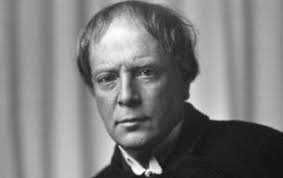It's not as if Liz didn't have the credentials. She holds a PhD in the History and Philosophy of Science from the University of Cambridge and has been widely published as both writer and journalist. She also owns a witchcraft shop and, perhaps, if she'd spoken to us as partially interested customers rather than in a dry academic manner the evening would have been more illuminating. As it was I struggled to overcome the temptation to check Facebook or play Words with Friends on my phone.
There was, however, magic. Or at least 'magic'. Which, again, was rather rushed over. Liz Williams couldn't wait to get to the revival of paganism, via witchcraft and wicca, one hundred and twenty years ago but, sadly, things here were still more than a little unclear. The talk was lacking any real narrative thrust and I'm struggling to build one here too. Why do I even do this?
The birth of wicca saw false, or at the very least unproven, claims made in an attempt to legitimise it. A controversial attempt to link it to ancient traditions based, Liz felt and she was on to something here I thought, that there's an inbuilt prejudice in society that believes that older and more tribal beliefs equate with good, natural, and honest and new stuff, as so often, is treated with suspicion.
Pagans are no different. Pagan groups compete, it seems, to be recognised as the oldest. The English 'ceremonial magician', 'Hermatic Qabalist' (yes really), and writer William G. Gray questioned this line of thinking while others have pointed out that our view of ancient paganism often comes to us through Roman accounts, that Druidic belief is oral and was rarely, if ever, written down, and that it's all mixed up with worship of Isis, Mars, Mithras, and in Bath, Sulis Minerva too.
I got that the church, initially, chose to ignore folk magic to instead focus on the more threatening, to their existence, heresy and that monks, like the fictional Cadfael, were expected to have a knowledge of herbalism and I already knew that the medieval belief that witchcraft wasn't real but was simply a delusion that people had was in place.
But, logic not being a strong point of Christianity, the church soon started to prosecute people believed to be witches. While, at the same time, insisting there were no such thing as witches. To try and square this inconvenient circle, clerics changed their tune. Nobody was born, or chose to be, a witch they now said. But Satan was using his dark powers to turn people into witches and making them eat babies. Always with the baby eating. That train's never late.
With this convenient lie accepted the witch trials could begin. They took place from about 1460 to roughly 1650 and, again - sadly, Liz didn't offer up anything like enough gory detail for me. I've not been out for two months. Give me some scandal, dude.
What I did find out is that Scotland carried out far more witch trials than England and that Wales had only five. Which is five too many but still. Other parts of Europe had more even than Scotland. It was all a bit vague but it was no surprise to learn that, for the most part, people were being reported, and tried, as witches for trifling matters and arguments with neighbours. In the current climate, and if witch trials were still a thing, you can imagine being burnt at the stake for inadequate social distancing or failing to clap for carers.
Anyone who didn't fit in, basically. My friend Jack had asked me that should Madame Blavatsky get a mention (as Jack felt sure she would) I should do a little dance around my front room. At 8.03pm that evening I got to do that Blavatsky boogie and got so carried away with it I even missed a bit of the talk. When I returned we'd moved on to Arthur Machen, Rosicrucianism, and freemasonry.
It all ended up with the contention that paganism was, for the most part, a service industry and, strikingly - and as if to shoehorn in some link to the current crisis, it was even suggested that paganism was in some way a forerunner to the NHS.
Hmmm. Nothing else in the talk was as contentious but, disappointingly, little of it thrilled me either. It's a rare miss, for me, for the London Fortean Society but I still thank them, Conway Hill, and even Liz Williams for delivering a knowledgeable, if dull, talk. If her mind was distracted at the moment who can blame her? Many of ours are. I'd logged in expecting to be distracted from the current distraction but it wasn't long before I was logging out and pushing my face back into the chainsaw of the news. Ouch.













No comments:
Post a Comment